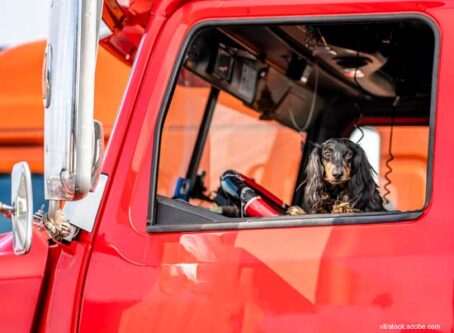Eliminating gliders won’t lead to huge spike in new truck sales
When the Owner-Operator Independent Drivers Association’s Collin Long testified in front of a House subcommittee in September, he made numerous compelling and well-founded points regarding the negative effects created by the regulation of glider vehicles.
Long told lawmakers about the affordability and efficiency of gliders as well as how they often serve as the best option for the small-business trucker.
This is all true, of course. But the point that really struck a chord with me was when Long told lawmakers that the debate facing owner-operators isn’t between buying a new truck with all of the emissions standards or a glider. New trucks are often too expensive and unreliable in order to fit into an owner-operator’s business model.
Without gliders in the market, most small-business truckers will either look to continue driving their current truck or purchase another used truck.
“A lot of our members are forced to drive their current trucks into the ground before they even consider replacing them,” Long said.
“These trucks aren’t necessarily any cleaner than a glider kit, which they at least specify with better aerodynamics and better fuel efficiency. The choice for our members is whether or not to continue with their current truck or purchase a glider truck, because they can’t afford a new truck.”
So while the focus was on debating the emission standards of new trucks and gliders, Long let lawmakers know that they were focusing on the wrong thing. Continued stringent regulations against the glider industry won’t lead to a drastic increase in new truck sales. It is much more likely that owner-operators will do anything they can to keep their used trucks running.
The Phase 2 greenhouse gas rule rolled back the use of gliders. In November 2017, the Environmental Protection Agency proposed to repeal emission requirements for gliders. The proposal received opposition from environmentalist groups.
Meanwhile, the debate continues over the validity of studies conducted by Tennessee Tech and the EPA. Both emissions studies have been criticized for their lack of objectivity.
And while lawmakers try to sort all of this out, small-business truckers are just trying to stay in business.
Loren Hunt, an OOIDA senior member from Bois D’Arc, Mo., learned the hard way that today’s new trucks are no longer a realistic option for his business after the implementation of EPA’s heavy-duty truck standards in 2007 and 2010.
With the new standards, manufacturers began using diesel particulate filters (DPF) in a truck’s exhaust filters to trap unburned particulates.
Hunt said the DPF had to be cleaned every 30,000 to 40,000 miles. It also needed to be replaced at 100,000 miles with a cost between $3,500 and $5,000. The DPF also required additional sensors and wiring. The fuel economy dipped 15 to 20 percent, Hunt said.
The 2010 standards led to even more expensive engines and technology.
This created a lot of problems for Hunt’s family business, LHT Enterprises, after he purchased three newer trucks in 2013. Hunt said his business encountered maintenance costs of nearly $35,000 during a 10-month span from 2013 to 2014. To make matters worse, the trucks weren’t generating any revenue as they were routinely down for repair.
Hunt’s business, which was started by his father in the 1960s, was in danger.
“It just about broke us,” Hunt said. “They were in the shop all of the time. Between those three trucks, they just about buried us in the winter of 2013.”
At that point, Hunt was faced with utilizing alternative vehicles or shutting down the 50-year-old business. He chose to go with gliders, saving tens of thousands of dollars on the sticker price alone. In addition, Hunt said he saved thousands from reduced fuel and maintenance costs.
“We knew we needed to do something different,” he said. “Since we purchased gliders in 2014, we’ve finally been able to dig ourselves out of that hole.”
Eliminating gliders as an option won’t put Hunt in the market for a new truck.
“A new truck isn’t an option. Gliders allowed us to stay in business.”









